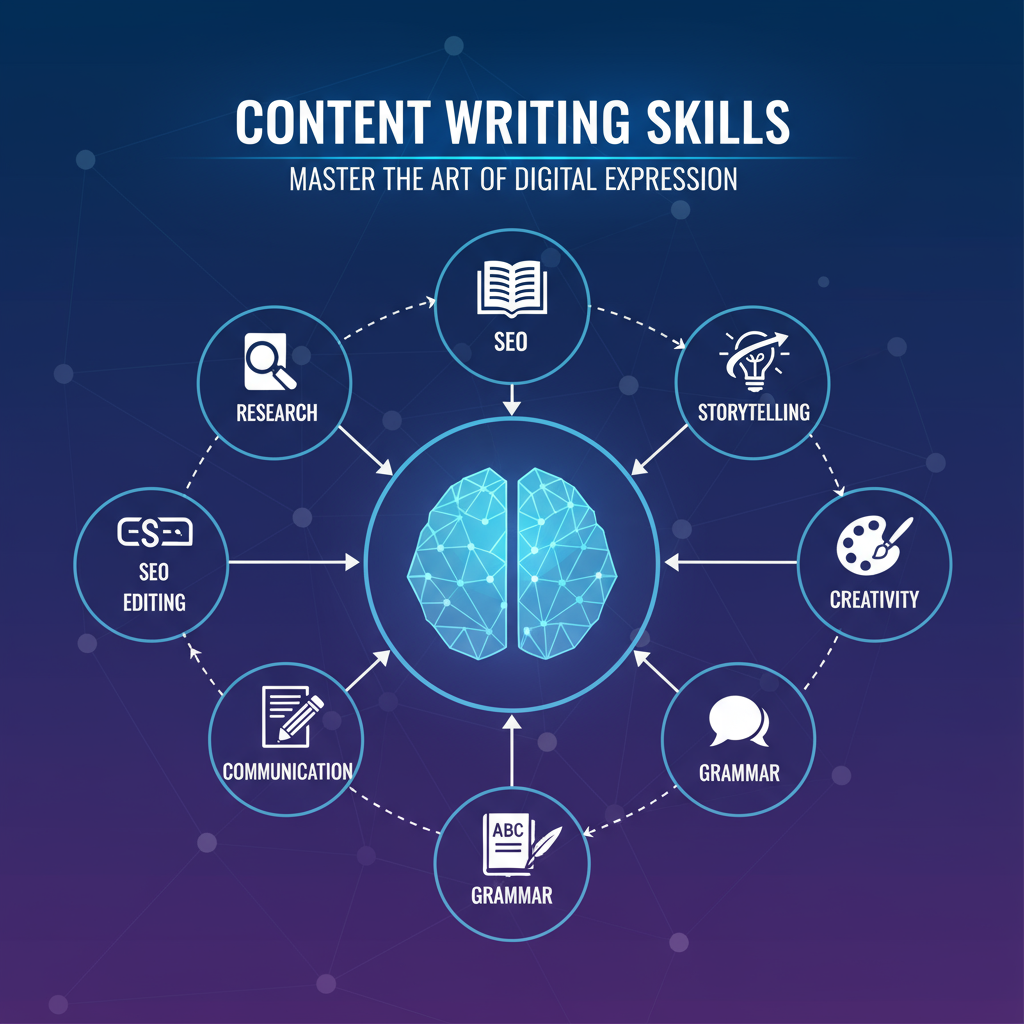
If you are a writer, whether freelancer or in-house, these seven content writing skills will help you improve your craft and create content that truly connects with readers.
Writing holds an important place in any blog or website. It deserves the same attention as the design of the site because it is the first level of engagement between you and your potential audience.
Your writing sets the tone and defines the future steps in the customer engagement process. Search engines rank your site based on the quality and relevance of the content it provides. Strong content writing skills are what drive organic traffic, increase engagement, and establish your authority as a brand.
That makes the role of content writers a key factor for online visibility and business growth. To succeed, writers must understand both their niche and their target audience.
Let’s explore the top content writing skills that will help you stand out in today’s competitive digital world.
1. Craft Headlines That Grab Attention
When do we click on an article or blog post? It usually starts with the headline. Headlines are the first impression and determine whether the reader continues or scrolls away.
If your headline lacks impact, even the best writing may not find engagement or traffic. A powerful headline should be relevant, catchy, and able to spark curiosity.

Why Headlines Matter
They set the expectation for your content.
They improve your chances of ranking higher on search engines.
They influence click-through rates (CTR) from SERPs.
2. Hook Readers With the First Two Lines
After the headline grabs attention, the next challenge is the opening lines. Readers take only a couple of seconds to decide whether they’ll continue.
That means the first two lines of your article can determine whether someone spends 30 seconds or three minutes on your content.
Make them impactful and consistent with the rest of the post. For example, start with a relatable question, a surprising statistic, or a bold statement that resonates with your audience.
3. Support Your Writing With Research
When writing personal blogs or opinion pieces, you can lean on your expertise. But writing for brands demands credibility.
Supporting your content with data, research, and examples builds trust with readers and search engines. Incorporating case studies, surveys, or visuals such as graphs makes your content more authoritative.

4. Focus on a Central Theme
Strong content is built around a single, focused idea. Drifting away from your main point dilutes the impact.
For instance, if your article highlights how a product makes learning fun, that should remain the primary message throughout. Each supporting section should connect back to that central theme.
This approach ensures clarity for the audience and aligns with how search engines evaluate content relevance.
5. Develop a Writing Style That Reflects Your Brand
Your writing style should reflect the tone of your blog or the voice of the brand you represent.
For a kids’ platform, the tone should be playful and simple.
For a SaaS content writing or ecommerce business, it should be professional, solution-driven, and clear.
When writing for brands, aligning with their goals and audience expectations is crucial. Consistent tone builds recognition and trust.
6. Optimize Content for Search Engines
Great content won’t matter if nobody finds it. That’s why SEO optimization is critical.
Search engines now evaluate not just keywords but also semantic relevance, experience signals, and Answer Engine Optimization (AEO) — how well your content can answer conversational queries for AI-driven search.
According to SEMrush (2025), over 60% of web traffic comes from organic search, and with large language models (LLMs) powering tools like ChatGPT and Google’s AI Overviews, optimizing for questions and structured answers has become essential.
Key SEO Strategies for Writers
Use long-tail keywords naturally.
Optimize meta titles and descriptions.
Include internal links to boost topic authority .
Structure content with H2/H3 subheadings for better readability.
Write in a way that directly answers potential user questions.
By combining SEO with quality writing, you ensure your content reaches a larger digital audience.
7. Proofread and Edit Before Publishing
The final but essential step is proofreading. Even the most insightful article loses credibility if it’s riddled with spelling and grammar errors.
Online tools like Grammarly and Hemingway Editor help refine language, eliminate errors, and enhance readability.
Proofreading also ensures your sentences flow smoothly and your message comes across clearly. It’s the polish that makes your work professional.
Key Takeaways
Write in a style that reflects your brand or the brand you represent.
Proofread your work to refine grammar and clarity.
Craft attention-grabbing headlines and impactful introductions.
Build your content around a central message.
Back your writing with research to establish credibility.
Optimize for SEO and AI-driven search engines to drive traffic.
Always focus on delivering value to your target audience.
FAQs
1. Why are content writing skills important for SEO?
Strong writing skills ensure that your content is not only engaging but also structured in a way that search engines can understand, index, and rank.
2. What tools can help improve content writing?
Grammarly, Hemingway Editor, and CoSchedule Headline Analyzer are excellent tools for refining writing and headlines.
3. How do writers adapt to AI and LLM-driven search engines?
By optimizing content for conversational queries, adding structured answers, and focusing on semantic relevance, writers can align their content with how AI search evaluates pages.
4. What’s the biggest mistake writers make?
Ignoring proofreading and publishing without refining. Even minor grammatical mistakes can hurt credibilit
Pingback: Top 5 Content writing tips for content workers in 2022 (updated) - contentwork.net
Pingback: How to Use Keyword Research for SEO Success as a Blogger - contentwork.net
Pingback: Building Self-Confidence: Unleashing Your True Potential
Pingback: Understanding SaaS content writing
Pingback: What is meant by content writing